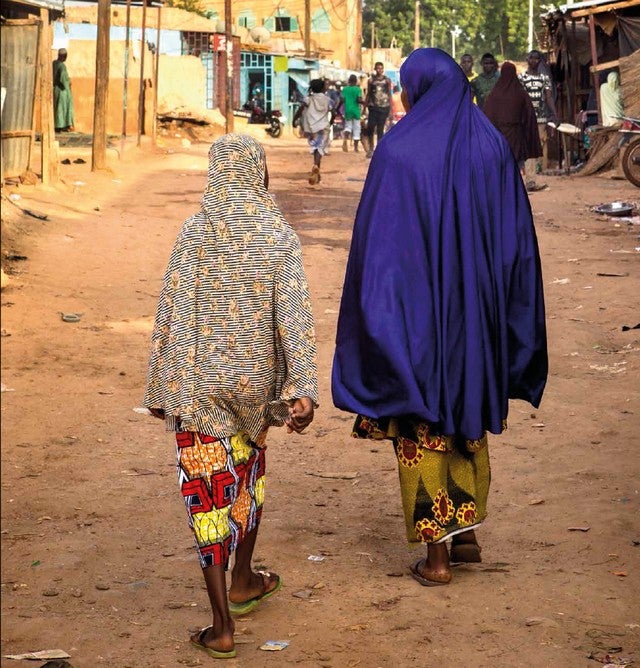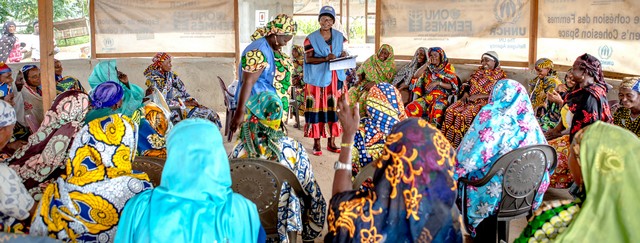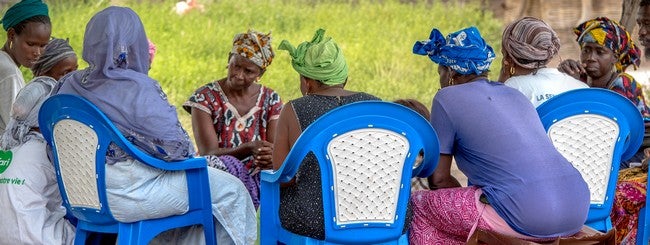Statistics on menstrual hygiene in Senegal, Niger and Cameroon are now available; product of action-research in the joint WSSCC-UN Women program
Date:
WSSCC, in collaboration with UN Women, implemented a joint program on Gender, Hygiene and Sanitation in three countries in West Africa; Senegal, Niger, Cameroon. The objective of this program is to strengthen health, hygiene and sanitation policies for women and girls in West and Central Africa, to change conduct and to promote good practices in menstrual hygiene management(MHM), to fill the lack of knowledge on this topic through action-research work. From this collaboration with the research teams of the Institute for Training and Demographic Research (IFORD), three studies were born; the first deals with the management of menstrual hygiene among nomadic populations in Niger, the second focuses on the management of menstrual hygiene in a humanitarian situation with the example of Cameroon, and the third with female genital mutilation with the example from Senegal.

In Niger, the study on the management of menstrual hygiene (MHM) was conducted in four regions of Niger: Maradi, Zinder, Tahoua, and Tillaberi. The overall objective of this study was to review and analyze behaviors and practices in menstrual hygiene management; their impact on the living conditions of sedentary and nomadic women and girls in Niger; and finally to assess the level of integration of menstrual hygiene management into public policies. The sample selected for the collection of quantitative data was randomly drawn among women and girls aged 12 to 49 and men aged 15 to 49 years. A total of 1310 people participated (868 women and 442 men). The results showed that, during menstruation, (i) women and girls observe nutritional, sexual, and religious restrictions; le (ii) men and boys are less concerned and assist less women and girls in the management of their menses; poor MHM practices are more prevalent among nomadic women (98%) compared to sedentary women (49%). In all regions of the survey, the proportion of women with poor menstrual hygiene remains above 50%. It is even higher in the Maradi region (73%); disposable sanitary napkins are the most used type of protection during menstruation because they are considered "safe and hygienic". Reusable sanitary pads are usually washed with soap and hot water. Few women use salt for washing, 17% in Tahoua and 14% in Maradi. At the end of the study, recommendations were made for decision-makers, including: increasing the number of WASH infrastructures in communities and households - especially in rural and urban households - on the one hand, and on the other hand, to reinforce the maintenance and preserve existing ones; intensify interventions to promote good menstrual hygiene management in rural and nomadic areas.

In Cameroon, the study was conducted in refugee camps on the difficulties women experience during their menstrual periods and the lack of adequate water supply, sanitation, suitable and quality hygienic facilities in the camps. During the study, 2063 people were interviewed including 1079 women. The survey was conducted on a population between 10 and 59 years old. The study revealed a lack of sanitation and hygiene, water supply infrastructure suitable to the specific needs of refugee women and girls. Human rights to water and sanitation must be accompanied by guarantees of dignity, privacy and security. Only 31% of households reported that the toilets they used provided a separation by sex. 49% of surveyed households reported that their toilets did not have any form of maintenance. The difficulties encountered by women during their menstruation have a considerable impact on their daily lives: 31% (one in three women) do not continue their occupation and activities during their period; the activities most likely affected by the menstruation period are mainly domestic and household activities (43.8%), commercial (36.3%) and education/school (29.7%). Also, the research showed that the types of toilets used by women did not always guarantee their privacy and safety and did not allow proper management of menstrual hygiene.

For Senegal, the target populations were women and girls aged 12 to 49, and men aged 15 to 59, residing in the regions of Sedhiou, Matam, Kedougou and Kolda. A total of 1,250 people participated in the study (500 excised women, 500 uncircumcised women and 250 men). According to the results of the study, women have a good knowledge of menstruation including reasons for their onset, the normal duration of menstruation, the length of the menstrual cycle and the consequences of poor menstrual hygiene on health. Menstruation is a taboo subject in a Senegalese society strongly marked by beliefs, myths, religious and community prohibitions, which affects the management of menstrual hygiene. Whether the woman is circumcised or not, and regardless of where she resides, menstrual blood is considered "an impurity, a filth, an evil substance," and as such, is handled with great discretion. Globally, 27% of girls and women reported that bad practices negatively affected their sexual and reproductive health. Excised women, on the other hand, are more likely to experience menstrual health problems than women who have not been excised.